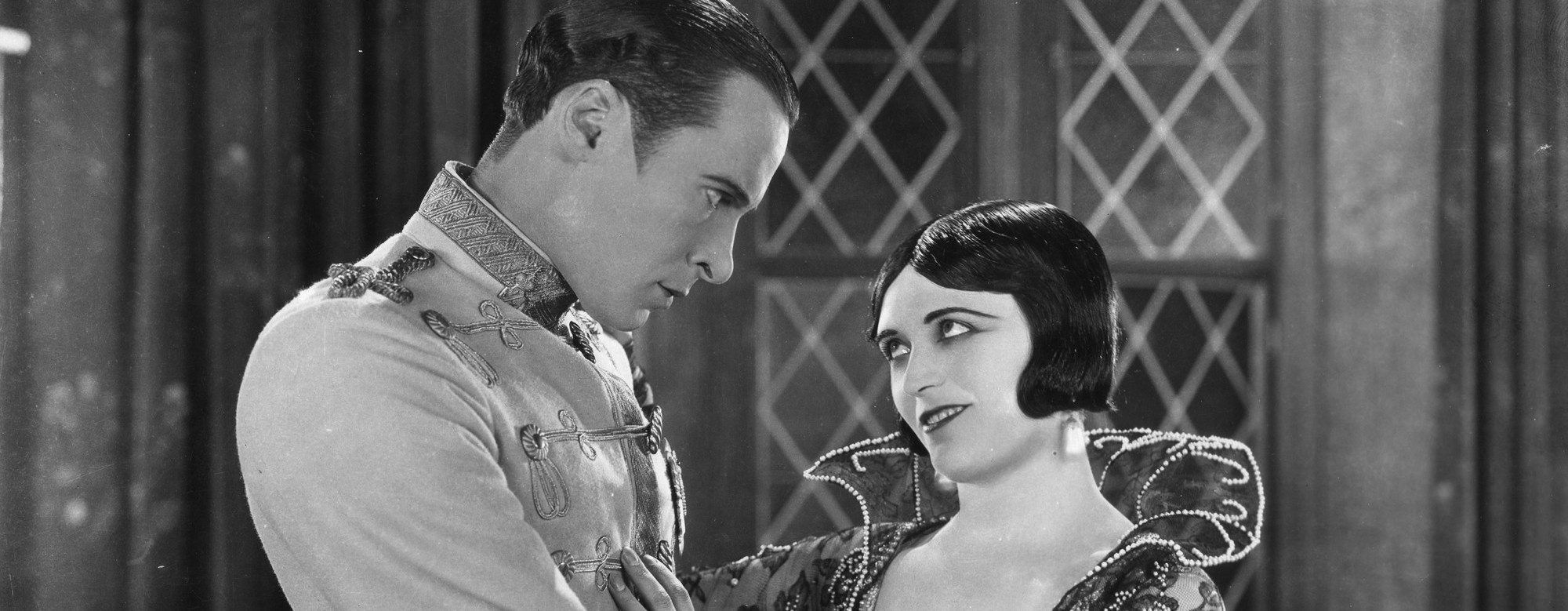
Wednesday 27 November
Ernst Lubitsch (1892–1947) is one of the defining figures of the cinema of the first half of the 20th century. Starting as an actor in Max Reinhardt’s Deutsches Theatre, he quickly became a key director of German cinema, moving dexterously between comedies of manners, exotic fantasias and epic historical romances and adventures. Renowned as a director of elegant and sophisticated sexual comedies, his wonderfully balanced and playful work is a marvel of intricate production design and expressive mise en scène. Leaving for the United States in 1923, Lubitsch quickly established himself as a brilliant director of bittersweet, almost continental comic romances and Ruritanian fantasies of a vanishing Europe. The overwhelming musical quality of his cinema allowed his silent work to be truly alive to the possibilities of sound and enabled his smooth, often breathtakingly inventive transition into the talkie era. A multi-talented artist, Lubitsch was also a successful and expressive comic film actor in the 1910s and became Production Manager at Paramount Pictures in the mid-1930s, an appointment that recognised his extraordinary influence and mercurial “touch”. This program showcases the fourth film Lubitsch made in Hollywood, Forbidden Paradise (1924), starring the iconic Pola Negri (who had collaborated on six films with Lubitsch in Germany), alongside two further recent restorations of important films from his German period: Carmen (1918; also starring Negri) and Kohlhiesels Töchter (1920).

7:00pm FORBIDDEN PARADISE
Ernst Lubitsch (1924) 73 mins – Unclassified 15+
Newly restored to the most complete version available for almost 100 years, Lubitsch’s sparkling silent comedy stars Pola Negri as a devilishly sexy, seductively sultry Czarina who embarks on an affair with a soldier (Rod La Rocque). The director’s first film with Famous Players-Lasky, which would lead to his long and fruitful partnership with Paramount Pictures, features his trademark visual sophistication and comic timing as well as richly decorative set design by Hans Dreier and elegant cinematography by Charles Van Enger. With Adolphe Menjou in a key early role.
Restored by the Museum of Modern Art and the Film Foundation with funding provided by George Lucas Family Foundation.
8:30pm CARMEN
Ernst Lubitsch (1918) 94 mins – Unclassified 15+
Loosely based on Bizet’s opera and the source novella by Prosper Mérimée, Lubitsch’s second film with the libidinous Pola Negri, released as Gypsy Blood in the United States, is a lavish vehicle for the great silent star. Released around the time of Germany’s final defeat in World War I, this is a formative work that points towards the director’s preoccupation with sexuality and historical subject matter in such key films as Madame DuBarry. Scripted by Hanns Kräly, influential French critic Georges Sadoul called it Lubitsch’s “first important film”.
4K DCP.
10:15pm KOHLHIESELS TÖCHTER
Ernst Lubitsch (1920) 64 mins – Unclassified 15+
Amongst the most commercially successful of Lubitsch’s German films, this is an “adaptation” of Shakespeare’s The Taming of the Shrew transposed to 19th-century Bavaria. The film follows two sisters; Gretel is pretty and agreeable; Liesel is plain and obstinate (Henny Porten plays both). Tradition dictates that the younger sister cannot marry before the older and something must be done before both sisters are condemned to spinsterhood! Theodor Sparkuhl’s innovative camera techniques add extra punch to this underrated early Lubitsch film. With Emil Jannings.